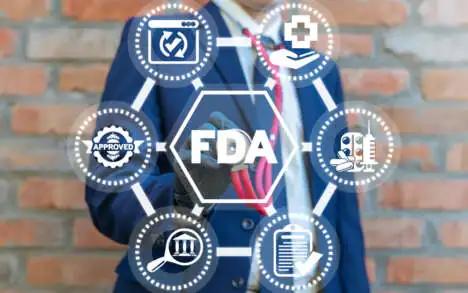Author: Arthur Brandwood
These are difficult times – and we need fast, really fast, regulatory reviews. So how does this work – how have regulators adapted to the COVID-19 pandemic? What new and adjusted pathways exist? And how can manufacturers play their part in ensuring really quick regulatory turnarounds?
Most regulators did their pandemic planning years ago and have existing powers to make emergency adjustments to regulatory requirements and processes. And there are existing pathways for expedited or compassionate access to new technologies which play their part. So, it’s really a matter of invoking these arrangements.
The View from The Regulator
TGA, like all regulators, is being inundated with queries from existing and new suppliers wanting expedited market access for medical products to assist in the diagnosis and treatment of COVID-19 patients. TGA is using a range of existing and emergency pathways to manage the workload, including internal triaging processes to determine which applications to prioritise.
There are options for special access, as well as new exemptions and expedited review pathways.
Special Access
TGA provides special access scheme (SAS) pathways with exemption from regulatory review for individual compassionate cases or for broader exemptions for use in a defined population. These provide a deal of flexibility to clinicians to use unapproved devices and medicines according to individual patient need, either in advance when planned (SAS B) or in emergencies with retrospective notification to TGA (SAS A).
A broader exemption is available via TGA’s Authorised Prescriber pathway which allows a clinician (or group of clinicians) to gain approval to use a device in a defined patient population. The application must be endorsed by an ethics committee and then reviewed by TGA before approval, and there’s a requirement periodically to report usage back to TGA.
Masks and PPE for National Stockpile purchases
Australia’s TGA has powers to waive regulatory requirements in times of public health emergency. On 20 March TGA issued the Therapeutic Goods (Medical Devices—Face Masks and Other Articles) (COVID-19 Emergency) Exemption 2020 which provides for a range of exemptions for suppliers of masks and personal protective equipment. Essentially this allows the Commonwealth (Federal) government to purchase unapproved devices for emergency use. Suppliers can only take advantage of these exemptions if they are selling directly to the Commonwealth government.
COVID-19 test kits supplied to accredited laboratories
The Therapeutic Goods (Medical Devices – Accredited Pathology Laboratories) (COVID-19 Emergency) Exemption 2020 provides an exemption from TGA review and ARTG registration for test kits which are manufactured on behalf of an accredited pathology laboratory. The exemption was initially only for public health labs but was rapidly expanded to apply to any accredited pathology lab, public or private, which is eligible for claiming to Medicare for approved pathology services.
In-house IVDs (“Lab Developed Tests”)
COVID-19 tests developed and validated within a NATA accredited laboratory are Class 3 IVDs, and can be supplied by those laboratories under existing NATA/National Pathology Accreditation Advisory Council (NPAAC) arrangements, with notification only to TGA. There is no requirement for TGA review or registration on the Australian Register of Therapeutic Goods (ARTG).
Point of Care and Self Testing
The TGA exemptions do not apply to rapid point of care tests unless they are supplied to an exempted accredited pathology lab. POC tests still need to be entered onto the ARTG for broader supply. However, point of care tests (POCT) that have been included in the Register can be supplied more broadly.
It’s important to understand though that TGA regulations specifically forbid self-testing (i.e. use of tests by non-clinical users) for serious diseases. So it remains illegal to supply COVID-19 tests direct to the public or for non-clinical users. This means that the use of such tests in workplaces, educational institutions and the like will require the presence of a clinician to administer the test.
Expedited Reviews
TGA is triaging new applications for registration for test kits, ventilators and other products addressing emergency pandemic needs. All applications for test kits particularly are being expedited, with TGA taking additional advice from the Chief Medical Officer, as well as the Public Health Laboratory Network on further prioritisation of specific test kits.
These expedited arrangements are not to be confused with TGA’s existing expedited review pathway for innovative devices. That pathway is intended for truly disruptive new technologies in any field and requires a detailed designation process followed by a full regulatory review – so it’s not designed for emergency reviews.
Key points for Manufacturers and Suppliers
If you have a test kit or other medical product which may have emergency utility, there are several key questions to be answered:
Do I qualify for priority treatment or exemption?
Take a long, hard and dispassionate look at the specific exemptions listed above. They are all very clearly defined. If you qualify – then apply. If not, you need to figure out if it’s worth seeking expedited review for ARTG inclusion. To do that you need to think about questions of evidence and readiness.
Do I have sufficient evidence?
If you want the regulator to lay out the red carpet you better come dressed for the ball. Yes, there’ s an emergency but right now evidence matters a great deal. Past emergencies have taught us the hard way that rushed decisions on limited evidence can lead to disaster. Recall the tainted blood scandals in the HIV pandemic when inadequate tests were used to screen blood supplies. Just this past week it emerged that some ineffective COVID-19 tests were detecting only 30% of infections, adding more to the misery of the epidemic in Spain and elsewhere.
TGA is being flexible in the types of evidence accepted, but it must be robust, convincing and scientifically sound.
If you are bringing a new product to market for the first time, here are some of the things to consider.
- Is your design mature, and backed with a Design History File containing all of the completed safety and performance testing and clinical evaluation?
- Have you done a proper risk assessment and included things like User Factors Analysis to confirm the device can be accurately and safely used in the hands of the target user? This also includes an assessment of labelling and instruction manuals etc.
- If it’s a test kit or disposable, have you got adequate shelf life and stability studies? There may be some unconventional ways to approach this but it’s often the biggest time hold up on a regulatory approval.
- For a test kit – do you have really solid laboratory analytical validation that may mean you don’t need clinical trials? If not – it may be worth talking to the regulator about what’s acceptable before doing such studies.
- Is manufacture done under Quality Controls to ISO 13485? Sounds obvious but unfortunately, some new players are looking to go forward without this basic requirement.
Can I supply product now?
Established manufacturers are gearing up with new tests and devices, as well as supporting other firms to manufacturer existing designs of things like ventilators. So new players are going to find there’s already plenty of competition well known to the regulators and rushing along to help. Overseas, the US FDA has loosened requirements for change notifications in case of supply changes, and the UK MHRA has gone so far as publishing a minimum standard for emergency manufacture of ventilators in non-medical manufacturing sites and without formal regulatory review, a step then followed by TGA. See this webinar with a specific update on ventilators for more details.
But these are exceptions. The hard question for new suppliers is – “am I ready now, with product ready to manufacture?” Also: are your supply chains in place to meet demand? Can you actually source all the components or finished product?
If you still have some work to do – go back to the lab and get moving, but it’s too early to trouble the regulator.
Is it worth talking to the regulator first?
If you are unclear on some of the above points it may be worth seeking a presubmission consultation. That’s a meeting with TGA (and right now it will be a tele/video conference for both speed and safety). Do you qualify? Pre-submissions are not about getting TGA to tell you what to do. You need to do your homework, come up with a credible and feasible plan that addresses the regulations, any current flexibilities and exemption and speaks to public safety. The presub needs to be focussed on specific unknowns and questions to resolve to allow you to move forward. There’s a formal pathway to do this – again TGA are flexible to speed this up where warranted.
Generally speaking, new tests, new ventilators and the like are getting attention. Anything else is case by case and must be compelling to get attention.
Bring Data
Remember, like all regulators, TGA is extraordinarily busy right now and everyone is demanding special treatment. That old regulatory adage “In God we trust, all others must bring data” is very real right now. Naturally, TGA is applying robust triage procedures to sort out priorities – so bring data and expect to be asked some tough questions before you get any special treatment.
We can assist with advice on the right course of action and opening a discussion with the regulator.Contact us








